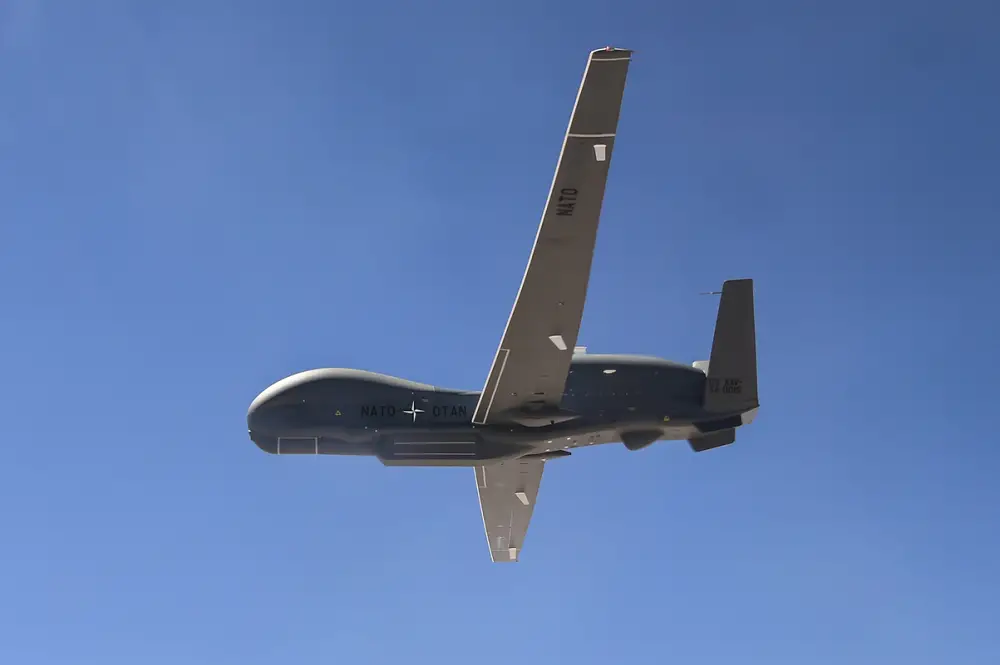On May 15, the Commander and Deputy Commander of Allied Air Command, US Air Force General James Hecker and Royal Air Force Air Marshal Johnny Stringer, visited NATO’s Alliance Ground Surveillance Force (NAGSF) at Sigonella Air Base Italy. industry. The visiting generals saw the new infrastructure and received operational updates of NATO’s organic ISR collection, processing and dissemination unit. Since 2020, the 420-strong NAGSF has operated NATO’s fleet of five RQ-4D Phoenix remotely piloted aircraft providing massive support to NATO’s ISR enterprise, especially focussing the effort to protecting territories and populations of the eastern Alliance members.
“Since we started to fly our RQ-4D fleet, as well as exploiting and disseminating extremely valuable and time-critical ISR products for the Alliance. Our staff at Sigonella has drastically improved standing processes, tactics, techniques and procedures to better meet NATO’s expectations and requirements,” said Italian Air Force Colonel Stefano Bianca, NAGSF’s Deputy Commander.
“After a brief visit to the force last June, this trip was an opportunity to take a closer look at the work our outstanding team of NATO Intelligence, Surveillance and Reconnaissance (ISR) experts deliver. I highly commend the NAGSF team who ensure Alliance decision-makers have state-of-the-art ISR data at hand to enable our deterrence and defence mission,” said General Hecker.

Later in the day, a group of Ambassadors of the North Atlantic Council visited the NAGSF Main Operating Base in the context of a Permanent Representatives trip to Italy organized by the Italian Delegation to NATO. General Hecker briefed the Ambassadors from 19 NATO members and the Assistant Secretary General for Defence Investment, Ms Wendy Gilmour, while the Force presented mission and capability updates. NAGSF is so much more than a unit that flies the advanced RQ-4D. It is a critical ISR hub for the Alliance, where experts daily receive, exploit, and fuse ISR data and distribute products providing first-rate support to NATO and national decision makers.
Alliance Ground Surveillance (AGS) is a NATO programme to acquire an airborne ground surveillance capability (Multi-Platform Radar Technology Insertion Program on the Northrop Grumman RQ-4 Global Hawk). In a similar fashion as with Strategic Airlift Capability the program is run by 15 NATO member states: Bulgaria, Czech Republic, Denmark, Estonia, Germany, Italy, Latvia, Lithuania, Luxembourg, Norway, Poland, Romania, Slovakia, Slovenia and the United States and soon to be the United Kingdom. The AGS system comprises five NATO RQ-4D Phoenix remotely piloted aircraft and the associated European-sourced ground command and control stations.
















